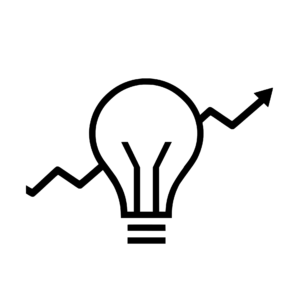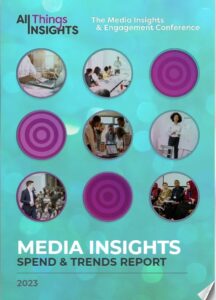Doing More, With Less
With some insights professional striving to produce a high level of insights on limited resources with smaller teams, the aim could be to reduce outsourcing needs while streamlining processes to save time. This could include anything from product and brand research to more specific goals such as customer experience research and advertising research. This can also include developing a strategy, creating questions, distributing the survey, and analyzing the data, as noted by SightX in its blog, “Getting Started with DIY Market Research.”
SightX further highlights some best practices of the DIY research capability including:
- Choose the Right Platform: Picking the best platform for your research is crucial for long-term success. An end-to-end solution that allows you to build projects, distribute surveys, and visualize the results in a single hub will significantly simplify and streamline your operations. And if you plan on running more complex research studies in the future, automation is key.
- Do Your Homework Before You Begin: Before you dive into any project, you’ll need to outline your goals and objectives. Whether it’s your first or 101st project, think carefully about what (exactly) you want to find out and how you plan to do so. Similarly, work with all stakeholders involved to lay out your goals, timelines, and roadmap. Presenting all of these items upfront can save you a lot of stress on the back end.
- Take Your Time on the Design: A poorly designed survey with poorly worded questions will get you nowhere. But writing effective and unbiased questions is not quite as simple as you’d think. As a general rule of thumb, don’t make your surveys too long and keep the questions straightforward. It can also help to have your co-workers test (and retest) your survey until the language and user experience are flawless.
- Don’t Be Afraid to Ask for Help: When in doubt, ask the professionals. Whether you need simple survey scripting or analysis assistance, take advantage of supportive research services to guide your experience. Not only will this make your projects more effective in the short-therm, but you can also fill your own knowledge gaps long-term.
- Test Frequently: Whether you’re running a brand tracker or developing a new product, frequent testing can help you verify your data and keep a pulse on the market. While every project will require a different level of iterative testing, it’s important to consider how outside factors may be affecting your respondents. Volatile markets, pandemics, and political turmoil can all have a massive effect on consumer psychology.
- Take Time for Continuing Education: Grow your basic understanding into a solid foundation with educational content and resources.
Instilling A Growth & Impact Mindset
All Things Insights has examined DIY market research several times, such as “Unleashing the Growth Potential of DIY Research.” During the “DIY Research” session of last year’s Road to TMRE Gathering, Seth Adler discussed “DIY Insights: When Less is More” with Anu Sundaram, Vice President, Business Analytics, Rue Gilt Groupe. They looked at instilling a growth mindset into the team; utilizing insatiable curiosity to synthesize and analyze data to communicate a story; distilling the important headlines; what teams need to know and ultimately what it means for the business; and optimizing rigor, discipline and talent to move from insights into impact.
Looking forward to TMRE 2024? The conference, which will be held October 8 to 10, will feature the session, “Only Impact Matters: Case Studies on Doing (a Lot) More With (a Lot) Less,” presented by Kamilah Jackson, AVP, Research & Competitive Intelligence at DIRECTV, and Jason Lau, Sr. Director, Consumer Insights at DIRECTV. It’s no secret that this has been a challenging couple of years for insights practitioners. In this session, DIRECTV’s research leadership will walk through several mini-case studies focused on some of the biggest existential challenges they have faced, and how they have adapted and continue to drive impact. Topics include making “good enough” a best practice: how to balance methodological rigor with actually helping your stakeholders; how to pivot when legacy research programs no longer serves their purpose; and remembering that PPT slides aren’t “impact”: how to insure your seat at the table. Register for TMRE 2024 here.
Taking Control of the Research Process
Overall, DIY market research offers insights professionals a cost-effective, agile, and empowering approach to conducting research, enabling them to gain valuable insights, develop essential skills, and drive strategic impact within their organizations. According to ChatGPT, DIY market research offers several benefits for insights professionals:
- Cost-Effectiveness: DIY market research tools and platforms are often more affordable than traditional research methods, allowing insights professionals to conduct research within budget constraints. By eliminating the need for expensive research agencies or consultants, DIY market research helps save costs while still delivering valuable insights.
- Speed and Agility: DIY market research enables insights professionals to design, launch, and analyze research studies quickly and efficiently. With self-service platforms and intuitive tools, professionals can bypass lengthy procurement processes and get real-time feedback from target audiences, allowing for faster decision-making and responsiveness to market changes.
- Control and Customization: DIY market research puts insights professionals in control of the research process, allowing them to customize studies to meet specific objectives and preferences. From survey design and sample selection to data analysis and reporting, professionals have the flexibility to tailor research methodologies and parameters to their unique needs, ensuring relevance and accuracy in the insights obtained.
- Accessibility to Data and Insights: DIY market research platforms provide easy access to a wide range of data collection methods, including surveys, polls, interviews, and focus groups. Insights professionals can leverage these tools to gather diverse perspectives from target audiences, uncovering valuable insights into consumer behaviors, preferences, and trends.
- Empowerment and Skill Development: Engaging in DIY market research empowers insights professionals to develop and hone their research skills and expertise. By actively participating in the research process—from designing surveys to analyzing data—professionals gain hands-on experience and insights into best practices, methodologies, and tools, enhancing their capabilities as research practitioners.
- Iterative Learning and Improvement: DIY market research facilitates iterative learning and improvement, allowing insights professionals to continuously refine research methodologies and strategies based on feedback and insights gained from previous studies. By embracing a cycle of experimentation, analysis, and optimization, professionals can drive continuous improvement in their research practices, ultimately leading to more robust and impactful insights.
- Alignment with Business Goals: DIY market research enables insights professionals to align research efforts more closely with overarching business goals and objectives. By directly engaging in research activities, professionals gain a deeper understanding of business needs and challenges, enabling them to tailor research initiatives to address specific organizational priorities and drive strategic decision-making.
Maximizing Your Market Research Investment
It’s easy to get bogged down in market research as the researcher strives to extract insights from all the big data available to them. While there is no one-size-fits-all solution or platform to every market research need, DIY efforts can be an effective solution for time- and budget-strapped teams.
The development of AI assistants can also help by giving insights professionals a new tool that can support their efforts by rapidly automating many data management tasks. As KnowledgeHound discusses in its blog, “5 Simple Strategies to Maximize Your Market Research Investment,” assembling the optimum research technology stack is ever more important for the hands-on market researcher: “Just as matching the right fuel to the correct engine is crucial for optimal performance, aligning the right tools with your consumer research endeavors ensures the highest level of efficiency and effectiveness.”
Video courtesy of Voxpopme
Contributor
-

Matthew Kramer is the Digital Editor for All Things Insights & All Things Innovation. He has over 20 years of experience working in publishing and media companies, on a variety of business-to-business publications, websites and trade shows.
View all posts












































































































































































































